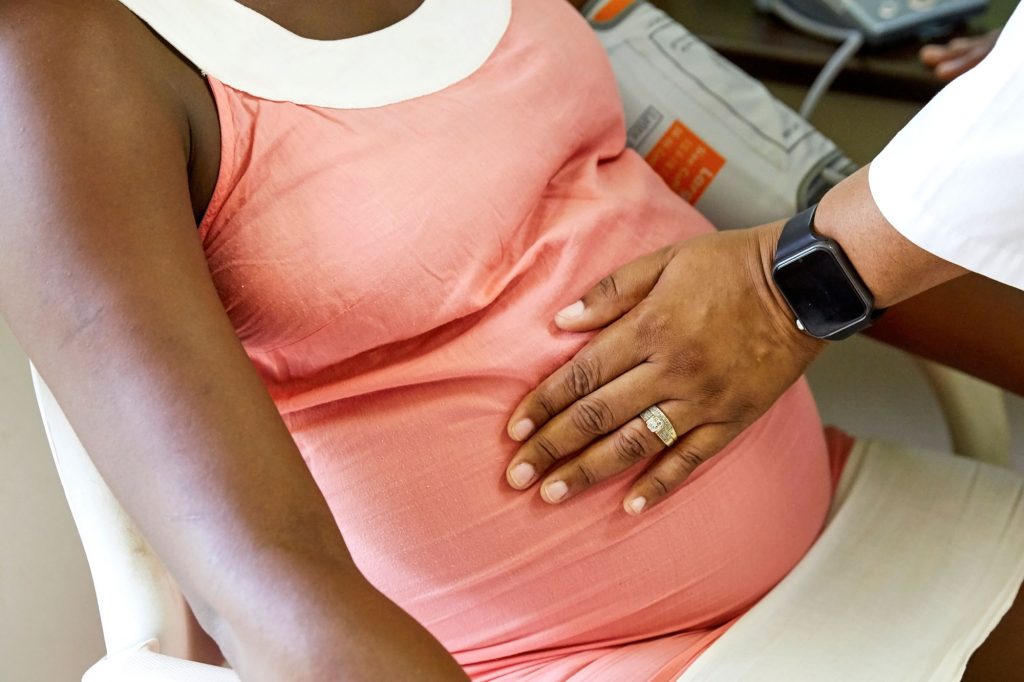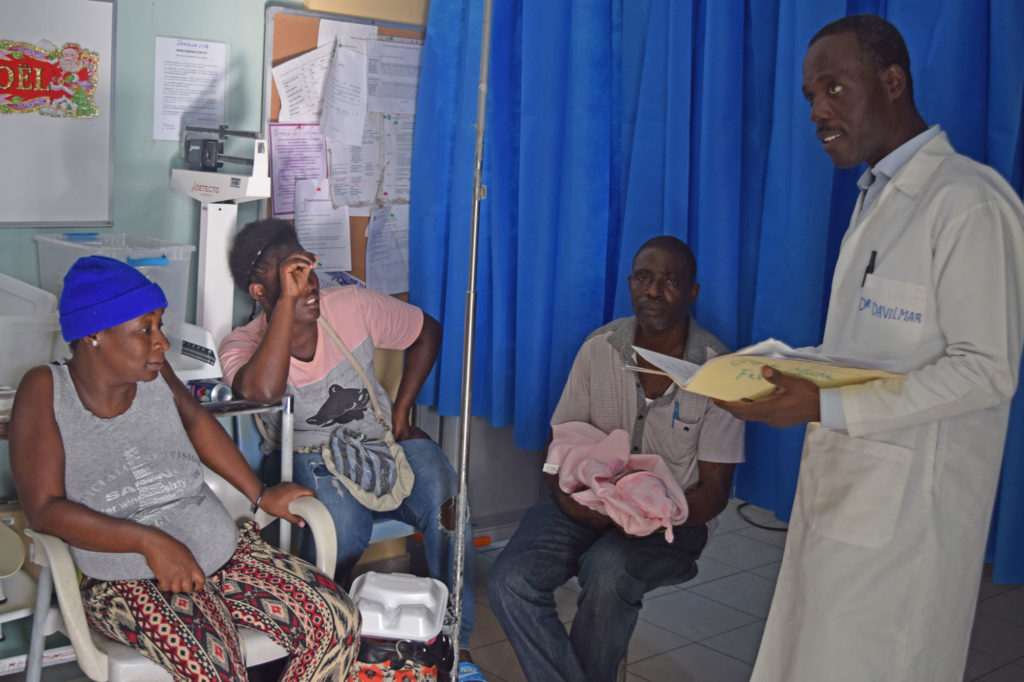Rita Merli maternity programme
St. Damien’s Rita Merli maternity programme opened its doors right after the 2010 earthquake. More than 50 hospitals were damaged in that disaster. St. Damien treated about 2,000 high-risk pregnancy patients in the first year alone. The programme has developed throughout the years to focus on high-risk pregnancies together with the neonatal unit. Since 2015 it has been led by programme director Dr. Inolson Davilmar. Dr Davilmar studied medicine at Université d’État d’Haiti (UEH) and spent 10 years with Doctors Without Borders.

Haiti’s only high-risk maternity programme
The Rita Merli programme delivers approximately 2,000 babies per year. The staff comprises 15 part-time and full-time obstetricians, 8 midwives, 24 nurses, and 24 other professional support staff. Each month the programme receives several volunteer clinicians from Italy, the Netherlands, and other countries. The Rita Merli team collaborates closely with the St. Luke Foundation for Haiti, Manitane Women’s Health Centre, and St. Luke Clinics in the slums.
Specialised care for high-risk patients
According to Dr. Davilmar, “the kind of care we provide at St. Damien is specialised care, and the pregnancies that we receive are all high risk. For normal deliveries, patients are referred to other hospitals. Here in the maternity wards, we have experienced, specialised gynaecologists. Complex cases such as bleeding, eclampsia, diabetes, are all difficult cases to manage. That’s why St. Damien provides the care that mothers cannot find anywhere else in the country.”

To keep our staff up-to-date on patients, there are 4 pillars of work:
- High-level sonography: regular sessions of sonography use and training for staff.
- Cardiotocography (CTG): used during pregnancy to monitor the foetal heart and contractions of the uterus. It is most commonly used in the third trimester. An abnormal CTG often indicates the need for more invasive investigations and potentially an emergency caesarean section.
- Neonatology: the St. Damien neonatology unit is one of only 5 such departments available in the entire country. Since neonatal deaths account for half of the national child mortality rate, St. Damien is thrilled to bring this valuable care to Haiti. And progress has been made: Haiti’s child mortality rate has been reduced by 20%, but the neonatal death rate has remained unchanged for the last 15 years. St. Damien focuses on saving infants from 26 to 27 weeks’ gestation.
- Staff training: our staff is constantly being trained through study abroad: in Italy, the Netherlands, Canada, and the U.S. Also, foreign clinical specialists visit to work alongside our teams in Haiti.
According to Dr. Davilmar, in the past there were only 3 high-quality maternity hospitals in Haiti. One was located in the Delmas 33 neighbourhood of Port-au-Prince and operated by Doctors Without Borders. It closed in 2018. The others are University Hospital in Mirebalais and St. Damien.
Far more patients, straining resources
The closure of some healthcare facilities and the poor performance of others have greatly impacted the volume and types of cases that come to St. Damien. Dr. Davilmar compares statistics from October 2017 to January 2019. “We received 751 pregnancies, but unfortunately we were able to admit only 270 due to a lack of beds. We transferred those overflow patients to other hospitals. In October 2018, the number of patients received increased by 40 percent to 1,054 pregnancies. We were able to admit just 319,” he says.
The main cases NPH now receives are eclampsia, bleeding, multiples pregnancies and births, and women who have had C-sections with prior deliveries. These conditions require more care and carry more risk than standard cases. Other complex cases commonly treated include heart disease, HIV and respiratory diseases.
The ward averages 150 deliveries plus 100 caesareans each month. In future, the programme hopes to increase the number of beds and add an intensive care unit.
A broader perspective from Father Rick
Fr. Rick Frechette, Advisor to NPH Haiti, provides a broader perspective. “I think the expansion of hospital services, maternity, and neonatology is pretty impressive. There were already places in Haiti that were doing maternity, although a major one fell in the earthquake [2010]. But ours does high-risk pregnancy, so that’s a whole different ball game. And it’s a large neonatology unit. There is maybe one other in Port-au-Prince, but it’s about 3 beds and ours is 50 beds. But the point is it brings new training and new capacity to the country on how to deal with these premature babies, so it’s not only caring for these children, but training people in a new science and gaining a lot of experience in management of a completely different population.”
More about maternal care in Haiti
If you are interested to know more about about maternal care in Haiti, peer organisation Midwives for Haiti explain the rationale behind why they invest in maternal care.
